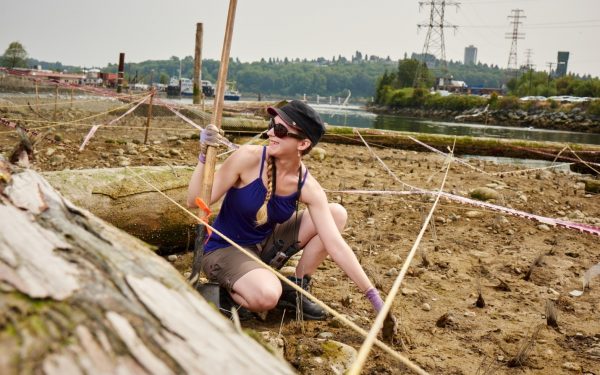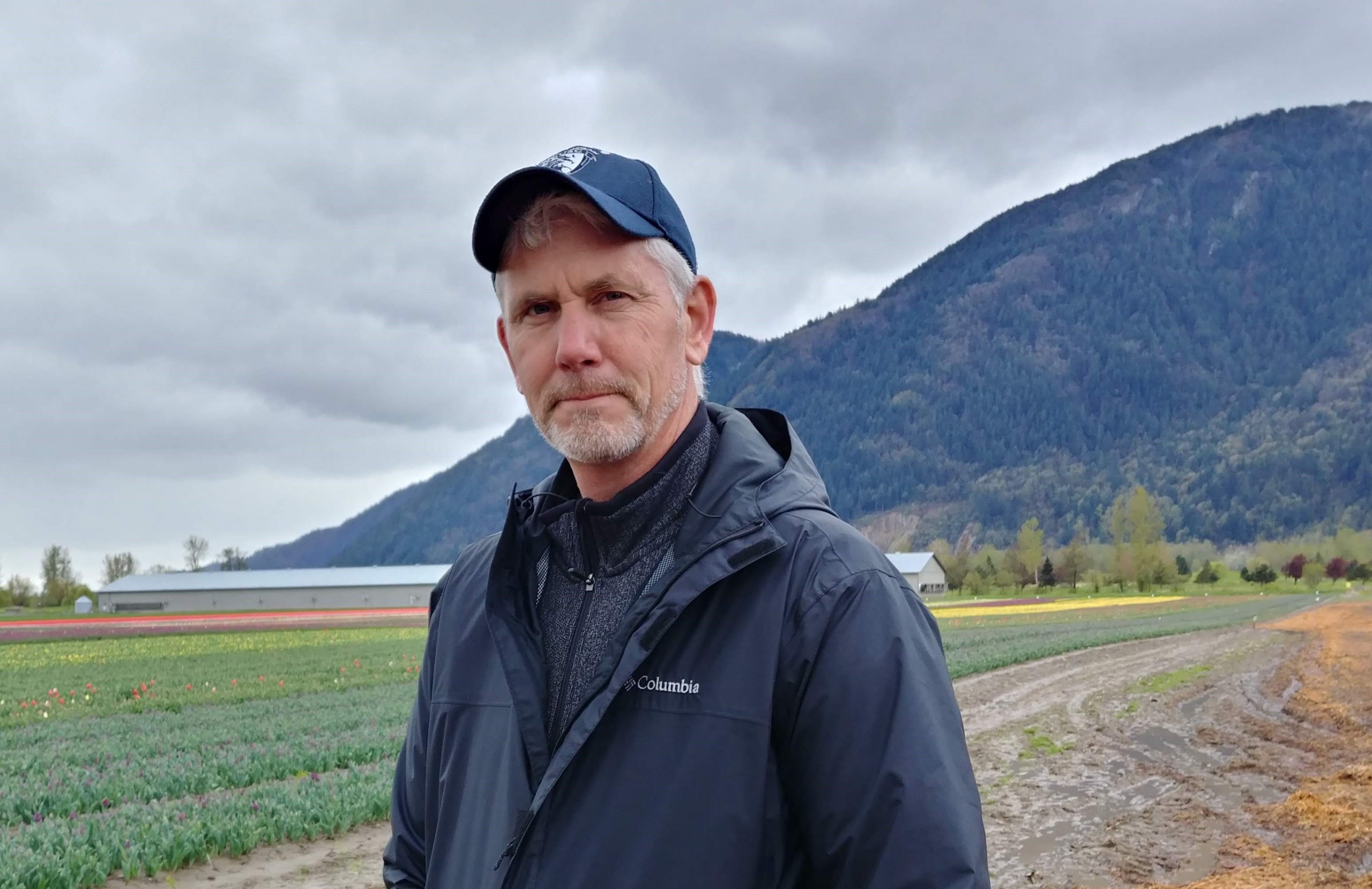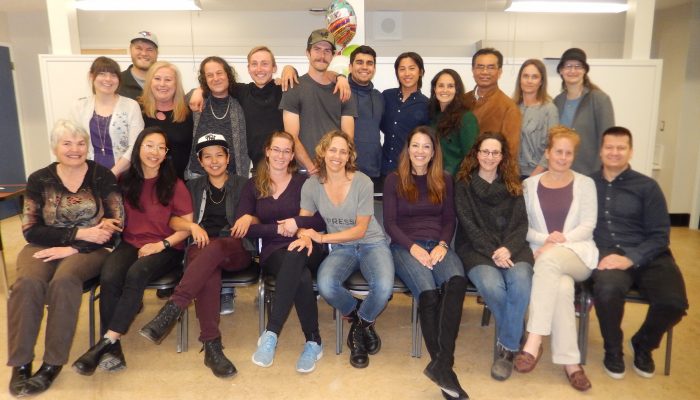RESIDENTIAL LANDSCAPE TECHNICIAN DIPLOMA
PROGRAM DESCRIPTION
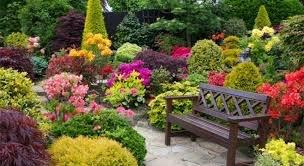
This part time diploma program covers information required for employment as a residential landscaper, including business fundamentals. It is industry approved and developed in cooperation with the BC Landscape and Nursery Association and also prepares participants to write the Landscape Industry Certified Technician and the Provincial Trades Qualifications Exam.
This program will be of interest to those considering a career in the landscape industry, are starting their own business in the landscape industry, or are currently in the industry and wish to update their knowledge and provide more comprehensive services.
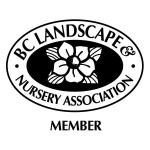
Topics covered include:
- Ornamental plants
- Irrigation
- Plant identification
- Plant installation
- Soils
- Design fundamentals
- Grading and drainage
- Landscape maintenance
- Turf
- Pruning
- Integrated pest management
- Business fundamentals
Participants can complete this program on a part-time basis in two semesters of 9 weeks each; the semesters are scheduled for September-December and January-March.
PREREQUISITES
Students should meet all the following prerequisites before registering:
- Proficiency in English
- Students must arrange their own transportation to off-site events
GRADUATION REQUIREMENTS
To graduate, students must meet all the following requirements:
- Minimum 70% final mark in each course
- Successful completion of all assignments and quizzes
- Attendance in at least 90% of classes
FUTURE EMPLOYMENT
Graduates of this program can find employment in the professional landscape industry or start their own landscape business.
COURSE OUTLINES
COURSE OUTLINE FOR STUDENTS STARTING IN THE FALL SEMESTER
- Ornamental Plants In The Landscape
- Plant ID I – Annuals
- Botany – Plant structure and chemistry
- Plant ID II – Perennials
- Soils I – Soil texture, structure, fertility, pH and how they relate to plant health
- Plant ID III – Deciduous trees & shrubs I
- Soils II – Soil tests, amendments, mulches, cultural practices and how they relate to plant health
- Plant ID IV – Deciduous Trees and Shrubs II
- Grading & Drainage – Causes and control of grading, drainage and erosion problems
- Plant ID V – Vines and ground covers
- Turf I – Characteristics and cultural needs of the most common West Coast turf grasses, turf establishment
- Turf II – Lawn maintenance, disease, weed and pest control (IPM)
- Integrated Pest Management I – Principles and practices of IPM
- Integrated Pest Management II – Principles and practices of IPM
- Irrigation Basics – Irrigation scheduling
- Irrigation Lab – Basic irrigation system installation and repair, sprinkler head adjustment
- Plant Installation – Site layout, calculating plant requirements, planting & staking, special environmental conditions such as high water tables, compacted soils, prevailing winds, etc
- Plant Installation Lab – Site layout and planting
- Design Fundamentals I – Elements of landscape design, site analysis
- Landscape Maintenance – Evaluation and scheduling of landscape maintenance
- Design Fundamentals II – Step-by-step design process
- Site Plan Lab – Measurement & collection of data for site plan
- Business Fundamentals I – Legal issues affecting the landscape business, such as WCB, Labour standards, bonding, insurance, liens, etc.
- Plant ID VI – Evergreen Trees & Shrubs I
- Business Fundamentals II – Estimating I
- Plant ID VII – Evergreen Trees & Shrubs II
- Business Fundamentals III – Estimating II
- Business Fundamentals IV – Contracts
- Pruning I – Tree physiology, pruning methods and their effect on trees, specialty pruning
- Pruning II Lab – Pruning of ornamental trees, shrubs and hedges; students must bring their own bypass pruners
- Plant ID VIII – Bulbs and plant ID review
COURSE OUTLINE FOR STUDENTS STARTING IN THE WINTER SEMESTER
- Ornamental Plants In The Landscape – Suitability of plants for a variety of environments & landscape uses
- Soils I – Soil texture, structure, fertility, pH and how they relate to plant health
- Botany – Nomenclature, plant structure and chemistry
- Soils II – Soils tests, amendments, mulches, cultural practices and how they relate to plant health
- Grading & Drainage – Causes and control of grading, drainage and erosion problems
- Plant ID I – Bulbs
- IPM I – Principles and practices of Integrated Pest Management
- IPM II – Principles and practices of Integrated Pest Management
- Pruning I – Tree physiology, pruning methods and their effect on trees, specialty pruning
- Pruning II – Lab – Pruning of ornamental trees, shrubs and hedges; students must bring their own bypass pruners
- Irrigation Basics – Irrigation scheduling
- Plant ID II – Evergreen trees and shrubs I
- Irrigation Lab – – Basic irrigation system installation and repair, sprinkler head adjustment
- Plant ID III – Evergreen trees and shrubs II
- Business Fundamentals I – WCB, Labour Standards, bonding, insurance, liens
- Plant ID IV – Vines and ground covers
- Plant Installation – Site layout, calculating plant requirements, planting & Staking, special environmental conditions such as high water tables, compacted soils, prevailing winds, etc
- Plant ID V – Annuals
- Turf I – Characteristics and cultural needs of the most common West Coast turf grasses, turf establishment
- Plant ID VI – Perennials
- Turf II
- Plant ID VII – Deciduous trees and shrubs
- Design Fundamentals I – Elements of landscape design, site analysis
- Plant ID VIII – Deciduous trees and shrubs II
- Design Fundamentals II – Step-by-step design process
- Landscape Maintenance – Evaluation and scheduling of landscape maintenance
- Business Fundamentals II – Estimating I
- Business Fundamentals III – Estimating II
- Plant Installation – Lab – Site layout and planting
- Business Fundamentals IV – Contracts
INSTRUCTORS
Julia Alards-Tomalin
Julia has studied Forest Ecosystems and Ecological Restoration at BCIT and has also received training in Ecological Landscape Design from Gaia College. She runs her own ecological restoration business, specializing in re-establishment of native plants in sensitive habitats such as estuaries and stream banks. In addition to field work, she enjoys teaching part-time and public speaking on various environmental topics when she has the opportunity.
Kevin Jinn
Kevin has studied Environmental Studies and Ethnobotany at UVic and has a Visual Arts degree from SFU. He is the owner of Carleton Landscaping, a landscaping company based in Vancouver BC, which focuses on using native plants and ecologically sustainable gardening practices in the urban environment. He is interested in sharing both practical business knowledge and field related experiences with students. Kevin has a passion for gardening to benefit the indigenous pollinators, birds and wildlife of British Columbia, and his goal is to have one native plant planted in every home in the Lower Mainland.
Jack van Duynhoven
Jack has 45 years of experience in the landscape horticulture industry. He is the second generation operating his family business (est. 1962). He completed the Landscape Horticulture and Design Technician program at BCIT and went on to supplement his horticultural knowledge in Plant Physiology, Integrated Pest Management, and Environmental Studies with a Bachelor’s in Biological Sciences at SFU. He then completed seed germination trials for the BC Ministry of Forests under a research grant. He was the 17th person in Canada to earn a Canadian Certified Horticultural Technician Certificate. Jack works in all aspects of landscape maintenance, including lawn care, IPM, pruning, drainage, and irrigation. He is also a landscape designer and installer, adept at both hand and CAD drawings. He creates interactive 3D landscape walkthroughs, showcasing sustainable designs for both residential and non-residential clients. Jack’s passion for educating his staff and promoting quality work in the horticulture industry has led him to teaching and consulting. He is now a teacher in Burnaby’s Landscape Apprenticeship and Residential Landscape Technician Programs. He is also teaching Pruning with Burnaby Continuing Education.
STUDENT FEEDBACK
